
The concept of life after death fascinates and perplexes people around the world. The ideas are based on culture, religion, and philosophical debates.
Because of all the uncertainty, numerous misconceptions have arisen about what happens after we die. This article aims to clarify and debunk some of the most common false beliefs surrounding this mysterious journey.
1. Every Religion is Similar
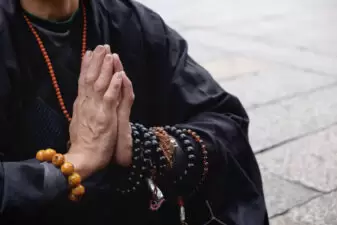
The belief that everyone has the same experience after death is common. However, this oversimplifies the diverse perspectives found across different cultures and religions.
All religions have different thoughts about life after death. Christianity focuses on Heaven or Hell, while the Islamic faith focuses on Barzakh, or a state of waiting. Hinduism and Buddhism focus on reincarnation and rebirth. Unique thoughts about the afterlife vary across religions.
2. Punishment or Reward

Many people assume the afterlife serves to reward the virtuous and punish the wicked. In reality, this binary view ignores the nuanced understandings present in many traditions.
For example, some Eastern philosophies view the afterlife as a stage for spiritual growth and learning, rather than a final sentencing. They believe you continue to grow and learn, even after your time in the physical world.
3. Physical Existence in the Afterlife

While nobody is certain, many people seem to think we maintain our physical bodies in the afterlife. Most spiritual traditions suggest the opposite. Our existence beyond this Earth, according to religious beliefs, is non-physical. The soul or consciousness exists independent of our bodies.
4. Death is the End of Existence

Skeptics often view death as the absolute end of existence. Many philosophical and religious arguments counter this idea, proposing that consciousness or the soul persists.
41% of people believe in ghosts according to a recent survey. Around the world, you’ll hear people share personal anecdotes of near-death experiences or supernatural encounters that point to some kind of afterlife.
5. Immediate Judgment After Death

The idea that one is immediately judged upon death is common in Western religions. Some traditions suggest different timelines or processes.
For instance, the ancient Egyptians believed that the soul undergoes a journey and trials before reaching judgment. The afterlife has a more complex and gradual system in some cultures.
6. Ghosts are Souls Stuck Between Worlds
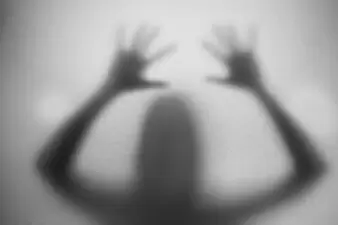
The concept of ghosts as souls that cannot find their way to the afterlife is popular in folklore. Interpretations vary widely.
Globally, some cultures view these spirits as manifestations of unresolved energy or psychic impressions rather than the actual souls of the deceased. It’s hard for many to shake the idea of having some kind of body or soul, even when they’ve departed this world.
7. All Religions View Hell as Eternal

The portrayal of Hell as an eternal place of torment is specific to certain doctrines. Certain religions or denominations consider Hell as purgatorial, where souls are cleansed rather than punished.
Think of these beliefs as considering Hell as a second chance. This reflects a more rehabilitative approach to the concept of post-mortem justice.
8. Reincarnation Means Returning as a Human

Reincarnation is often misunderstood as a cycle of returning as humans. In many Eastern traditions, reincarnation can occur across different species, realms, or even as non-living entities.
Many religions are centered on the idea that reincarnation is based on one’s karma or moral actions in previous lives. You could come back as anything, and it all depends on what you’ve done with your mortal existence.
9. Only Humans Have an Afterlife

Surprisingly, some religions and philosophies believe in the afterlife for more than just human beings. Animals, plants, trees, and other entities may have their own life after death as well.
Many indigenous beliefs believe in the spiritual existence of all elements of nature, not just humans. Their religions and beliefs are centered on the idea of an afterlife for every living thing on the planet.
10. The Afterlife is Unchangeable

Some believe that one’s fate is sealed once the afterlife is reached. Contrarily, various philosophies and religious teachings suggest that the soul’s journey may continue evolving.
According to these beliefs, your soul could continue moving through different stages or states of being based on ongoing spiritual development or divine grace. This mirrors the physical life where we move through different stages based on our age, marital status, and having children.
11. Communication with the Dead is Impossible
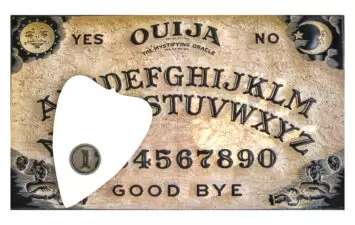
While mainstream science rejects the notion of communicating with the afterlife, numerous cultures embrace this as a significant aspect of their spiritual practice. Cultures around the world have rituals to honor the departed, such as Día de Muertos in Mexico.
A handful of people believe this communication is merely symbolic. Others believe that they’re having real interactions with the spiritual world.
12. Knowing About the Afterlife is Unnecessary
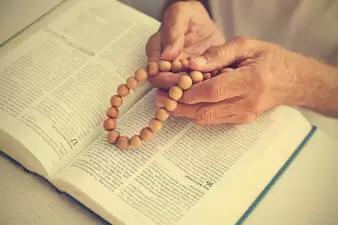
Naysayers believe that understanding the afterlife is irrelevant. As such, they lack any consideration for the spiritual dimensions of life.
In reality, engaging with ideas about life after death can provide meaningful insights into our existence. Giving it some thought can encourage moral living and a deeper understanding of life’s mysteries.
It’s All a Mystery
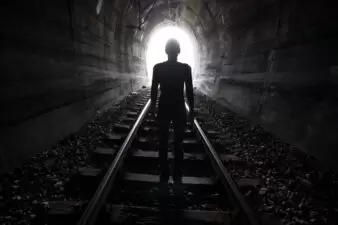
Nobody really knows what might lie beyond the veil of death. By thinking about the afterlife, however, challenges us to think critically about our beliefs and to appreciate the rich variety of interpretations that exist within human culture.
As we expand our understanding, we can approach the inevitable journey with greater peace, curiosity, and hope. Thinking about life after death enriches our appreciation for the time we do have on this Earth.
Read More:
12 Health Myths That Keep Fooling Us: Here’s Why They’re Wrong
12 Amazing Towns That You Have No Idea Exist

Alyssa Serio has been a writer and editor since graduating from Aurora University in 2014. In her free time, she loves reading, playing volleyball, and watching any horror movie (even the bad ones) with her husband.

